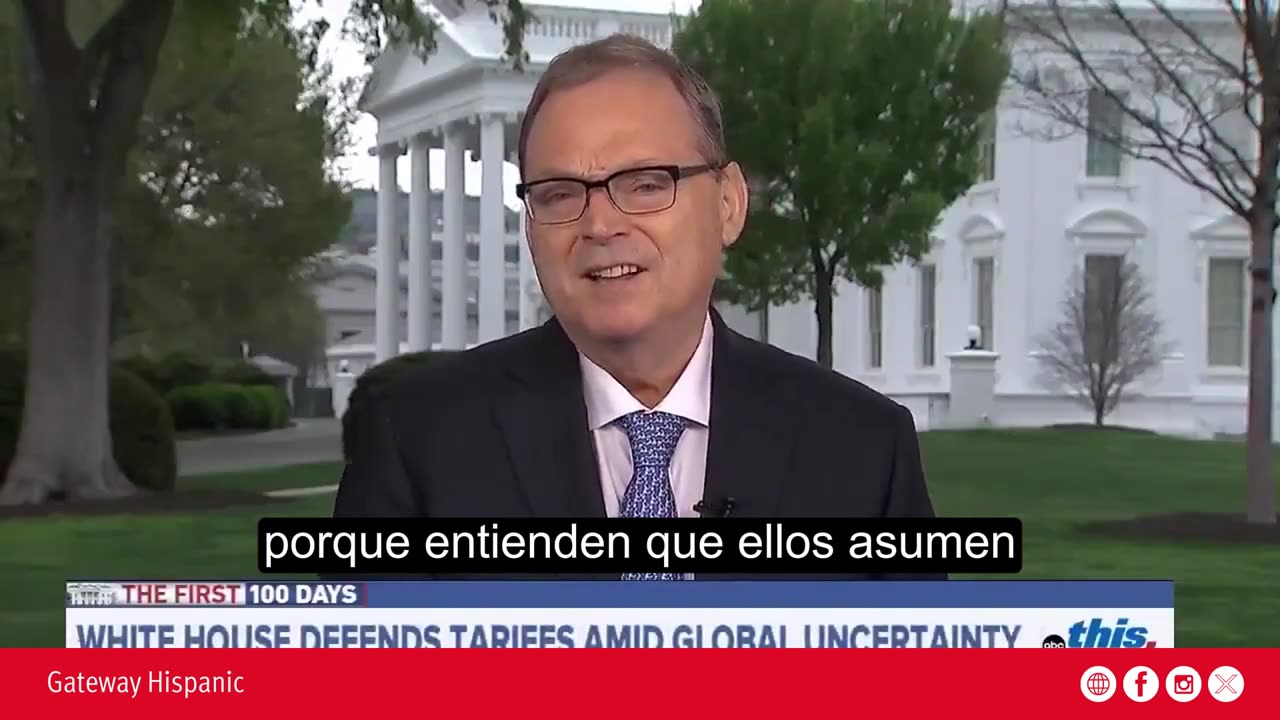Premium Only Content

Over 50 countries have called to negotiate with Trump so far
"Last night, I received a report from the USTR that over 50 countries have approached the president to start negotiations. But they are doing it because they understand that they bear a large part of the tariff.
So I don't think we're going to see a major effect on the U.S. consumer because I do believe the reason we have a persistent long-term trade deficit is that these countries have a very inelastic supply. They have been flooding the country with products to create jobs, for example in China."
Several countries have expressed their interest in negotiating with the administration of President Donald Trump regarding the tariffs imposed in 2025. The U.S. Trade Representative, Jamieson Greer, reported that nearly 50 countries, including Argentina, Vietnam, and Israel, have shown a willingness to reduce their own tariffs and non-tariff barriers. Greer sees these initiatives as positive developments in trade negotiations.
Specifically, Argentine President Javier Milei, during a visit to Florida, expressed Argentina's commitment to adjusting its regulations to align with Trump's proposed reciprocal tariffs. To date, Argentina has implemented nine of the 16 requirements established.
Additionally, Israeli Prime Minister Benjamin Netanyahu and Trump have agreed to eliminate the tariffs that Israel had imposed on U.S. products. This measure aims to reduce the trade deficit and eliminate economic barriers between the two countries.
In the case of Mexico, the administration of Claudia Sheinbaum has been negotiating with the United States to obtain a "preferential treatment" amid the trade war. Mexico has emphasized the reduction of migrant crossings and fentanyl seizures as key priorities for Trump, with the goal of avoiding conflicts and seeking more favorable bilateral agreements.
Besides these countries, Indo-Pacific nations such as India, Australia, South Korea, Japan, and Taiwan are negotiating with Washington to avoid additional tariffs. These negotiations include measures such as reducing import tariffs and increasing purchases of U.S. products to balance trade relations.
Regionally, the European Union has shown interest in negotiating with the Trump administration to reach mutually beneficial trade agreements. Senior EU officials have expressed their willingness to reduce or eliminate tariffs on certain goods, seeking a resolution that benefits both parties.
In summary, various countries and economic blocs are actively engaged in negotiations with the Trump administration to address the tariffs imposed in 2025, with the goal of reaching agreements that favor their commercial and economic interests.
-
 DVR
DVR
Bannons War Room
7 months agoWarRoom Live
37.8M8.79K -
 LIVE
LIVE
LFA TV
12 hours agoBREAKING NEWS: SHOOTER IN DALLAS! | WEDNESDAY 9/24/25
4,729 watching -
 1:54:17
1:54:17
Nikko Ortiz
2 hours agoBEST Place To Go During World War 3
17.6K1 -
 LIVE
LIVE
Trumpet Daily
19 minutes agoTrumpet Daily LIVE | Sept. 24, 2025
240 watching -
 LIVE
LIVE
The Shannon Joy Show
1 hour agoWTF? Technofascist Trump Tells UN He Will Launch A Global AI ID System. Guest: Derrick Broze!
119 watching -

Benny Johnson
2 hours agoBREAKING: Left-Wing Terrorist Attack at ICE Facility, Sniper Opens Fire | Kimmel Sobs in Non-Apology
43K57 -
 LIVE
LIVE
The Big Mig™
3 hours agoTrump, Chuck Schumer & Hakeem Jeffries Can Go Pound Sand!
5,918 watching -
 1:09:27
1:09:27
The Kevin Trudeau Show Limitless
2 hours agoHow Energy, Mindset, And Marketing Really Work: Kevin Trudeau Reveals All!
5.9K1 -
 1:35:46
1:35:46
Dear America
3 hours agoGoogle ADMITS CENSORING Under Biden!! WE WERE RIGHT!! + The UN Sabotaged Trump!!
118K63 -
 LIVE
LIVE
Badlands Media
9 hours agoBadlands Daily: September 24, 2025
3,205 watching